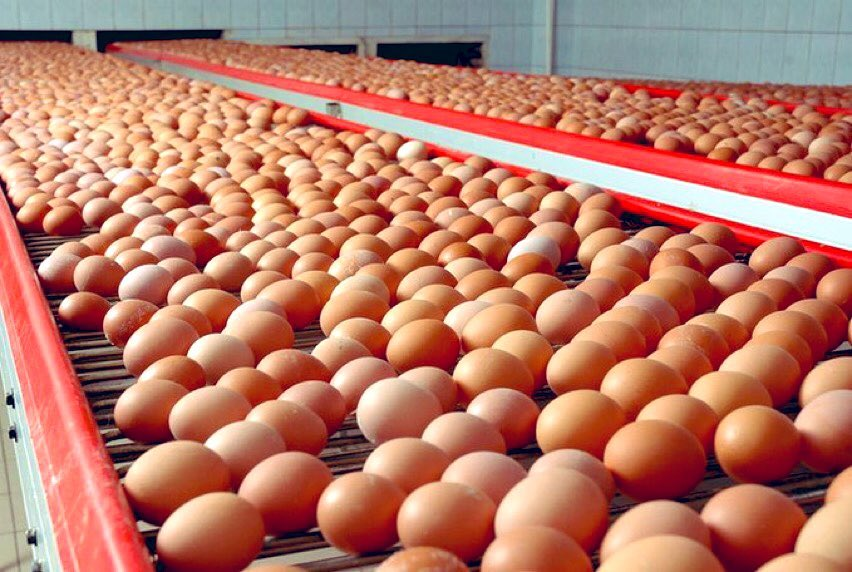
Dear Parents: What type of #protein do you feed your young children?
Some may argue that meat, milk, and beans are among the foods you feed your children.
I want to share with you 10 importance of feeding your children egg in Rwanda.
Pass through this #Threads to learn more.

Some may argue that meat, milk, and beans are among the foods you feed your children.
I want to share with you 10 importance of feeding your children egg in Rwanda.
Pass through this #Threads to learn more.


1. Protein Source.
Eggs are an excellent source of high-quality protein, which is essential for children's growth and development.
In Rwanda, where malnutrition remains a significant problem, eggs can provide children with the nutrients they need to thrive.
Eggs are an excellent source of high-quality protein, which is essential for children's growth and development.
In Rwanda, where malnutrition remains a significant problem, eggs can provide children with the nutrients they need to thrive.
2. Nutrient-rich.
Eggs are also rich in essential nutrients such as vitamins A, D, and E, as well as calcium, iron, and zinc, which are vital for building strong bones, boosting the immune system, and supporting brain development.
Eggs are also rich in essential nutrients such as vitamins A, D, and E, as well as calcium, iron, and zinc, which are vital for building strong bones, boosting the immune system, and supporting brain development.
3. Cost-effective.
Eggs are relatively inexpensive and widely available, making them an accessible and affordable source of nutrition for families in Rwanda, especially those who may not have access to more expensive protein sources such as meat or fish.
Eggs are relatively inexpensive and widely available, making them an accessible and affordable source of nutrition for families in Rwanda, especially those who may not have access to more expensive protein sources such as meat or fish.
4. Versatile.
Eggs can be prepared in a variety of ways, from boiled to fried to scrambled, making them a versatile and convenient food option for busy families
Eggs can be prepared in a variety of ways, from boiled to fried to scrambled, making them a versatile and convenient food option for busy families
5. Easy to digest.
Eggs are also easy to digest, making them an ideal food for young children whose digestive systems may not yet be fully developed.
Eggs are also easy to digest, making them an ideal food for young children whose digestive systems may not yet be fully developed.
6. Reduce stunting.
According to the World Food Programme, stunting affects 38% of children under the age of five in Rwanda.
Eggs can help reduce stunting, as they are rich in nutrients that support growth and development.
According to the World Food Programme, stunting affects 38% of children under the age of five in Rwanda.
Eggs can help reduce stunting, as they are rich in nutrients that support growth and development.
7. Increase cognitive function.
The high levels of choline found in eggs have been shown to improve cognitive function and memory, which is particularly important for children's learning and development.
The high levels of choline found in eggs have been shown to improve cognitive function and memory, which is particularly important for children's learning and development.
8. Increase cognitive function.
The high levels of choline found in eggs have been shown to improve cognitive function and memory, which is particularly important for children's learning and development.
The high levels of choline found in eggs have been shown to improve cognitive function and memory, which is particularly important for children's learning and development.
9. Boost the immune system.
The high levels of protein and essential nutrients found in eggs can also help boost children's immune systems, making them less susceptible to infections and diseases.
The high levels of protein and essential nutrients found in eggs can also help boost children's immune systems, making them less susceptible to infections and diseases.
10. Support livelihoods.
By providing eggs to children in Rwanda, families can also support local egg producers and contribute to the development of the local economy.
This can help create more stable and sustainable livelihoods for communities in the long term.
By providing eggs to children in Rwanda, families can also support local egg producers and contribute to the development of the local economy.
This can help create more stable and sustainable livelihoods for communities in the long term.
Read more here: unicef.org/rwanda/press-r…
If do you need more #agriculture ideas, tips, and advice through photos/ videos?
Follow me now now to get exclusive contents.
Youtube:youtube.com/@niyomugaboagtv
Facebook:web.facebook.com/jniyomugabo
LinkedIn:linkedin.com/in/jcniyomugab…
Instagram:instagram.com/jcniyomugabo/
Follow me now now to get exclusive contents.
Youtube:youtube.com/@niyomugaboagtv
Facebook:web.facebook.com/jniyomugabo
LinkedIn:linkedin.com/in/jcniyomugab…
Instagram:instagram.com/jcniyomugabo/
• • •
Missing some Tweet in this thread? You can try to
force a refresh












